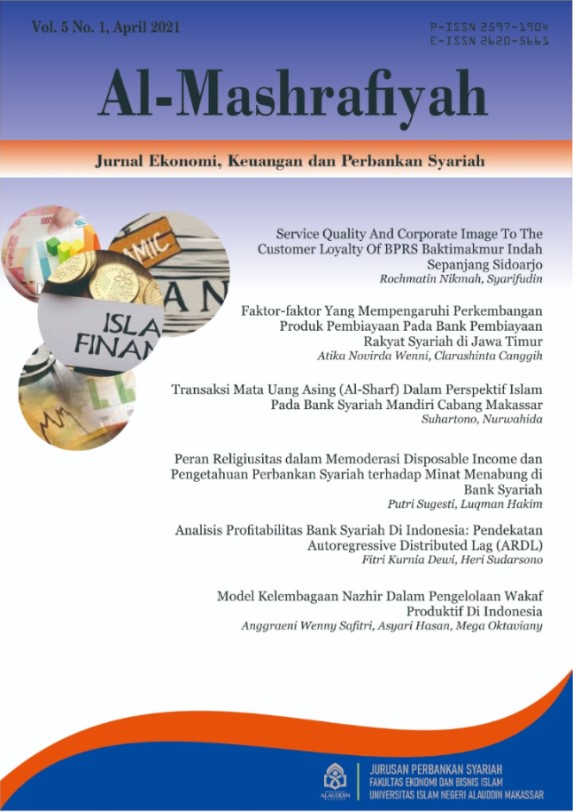Model Kelembagaan Nazhir Dalam Pengelolaan Wakaf Produktif Di Indonesia
Abstract
This study aims to identify the factors inhibiting the management of productive waqf in Indonesia and the strategic priorities that can be offered with the Analytic Network Process (ANP) approach. Respondents consist of the Indonesian Waqf Board (BWI), academics and practitioners who are involved in the world of productive waqf. The results of this study indicate that the problems that arise in the management of productive waqf in Indonesia consist of 4 important aspects, namely: 1) human resource problems; 2) information and technology issues; 3) sharia issues and 4) regulatory issues. The strategic priorities for developing productive waqf are 1) strengthening information systems and waqf technology; 2) aspects of strengthening governance (good Nazhir governance), 3) aspects of the formation of educational institutions, socialization and education of waqf, 4) aspects of regulatory support from the Government. The results of this study can complement the management of existing productive waqf, the application of strategic priorities can encourage better collection and distribution of productive waqf.
Published
2021-04-30
How to Cite
Safitri, A. W., Hasan, A., & Oktaviany, M. (2021). Model Kelembagaan Nazhir Dalam Pengelolaan Wakaf Produktif Di Indonesia. Al-Mashrafiyah: Jurnal Ekonomi, Keuangan, Dan Perbankan Syariah, 5(1), 75-91. https://doi.org/10.24252/al-mashrafiyah.v5i1.17030
Issue
Section
AL-MASHRAFIYAH VOLUME 5 NOMOR 1 (2021)


